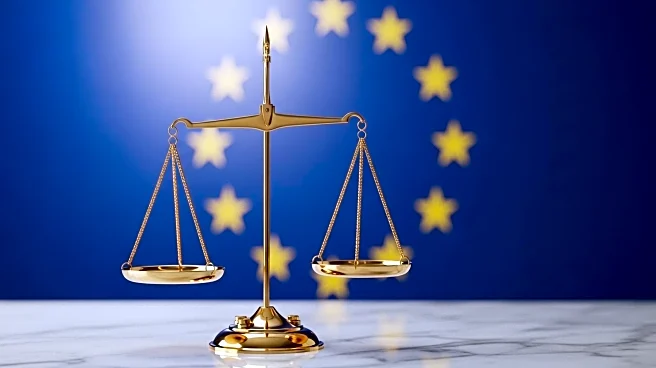What's Happening?
Meta, under the leadership of Mark Zuckerberg, has taken significant steps to enhance free speech protections on its platforms, including Facebook. This move follows Elon Musk's acquisition of Twitter, now X, where he dismantled its censorship operations. Meta has adopted similar strategies, such as relying more on community notes rather than removing posts, and modifying its classifiers to reduce over-enforcement. These changes have reportedly reduced enforcement mistakes in the U.S. by over 75% weekly. However, Meta faces challenges from the European Union, which poses a significant threat to free speech through its Digital Services Act. The EU has pressured social media platforms to censor content, threatening fines that could exceed $1 billion.
Why It's Important?
Meta's initiative to restore free speech is crucial in the ongoing battle against censorship in social media. With over 3 billion users, Facebook's stance can significantly influence global free speech dynamics. The reduction in enforcement mistakes suggests a more balanced approach to content moderation, potentially fostering a more open dialogue online. However, the EU's stringent regulations could hinder these efforts, impacting American users and global discourse. Meta's actions could set a precedent for other tech companies, encouraging a shift towards less restrictive content policies and challenging governmental censorship efforts.
What's Next?
Meta's next steps involve navigating the EU's regulatory landscape while maintaining its commitment to free speech. The company may need to find a balance between complying with EU regulations and preserving its new approach to content moderation. This could involve negotiations or adjustments to its policies to avoid hefty fines. Additionally, Meta might expand notifications to EU citizens about geoblocking due to censorship regulations. The Trump administration's warnings to the EU about censoring Americans could bolster Meta's position, potentially leading to a coalition of government and corporate allies advocating for free speech.
Beyond the Headlines
The broader implications of Meta's free speech initiative include potential shifts in global social media policies. If successful, Meta's approach could inspire other platforms to adopt similar strategies, reducing censorship and promoting open dialogue. This could lead to a cultural shift where free speech is more robustly defended online, challenging the growing trend of speech curtailment. The ethical dimension involves balancing free speech with the need to prevent harmful content, a challenge that Meta and other platforms must continually address.











